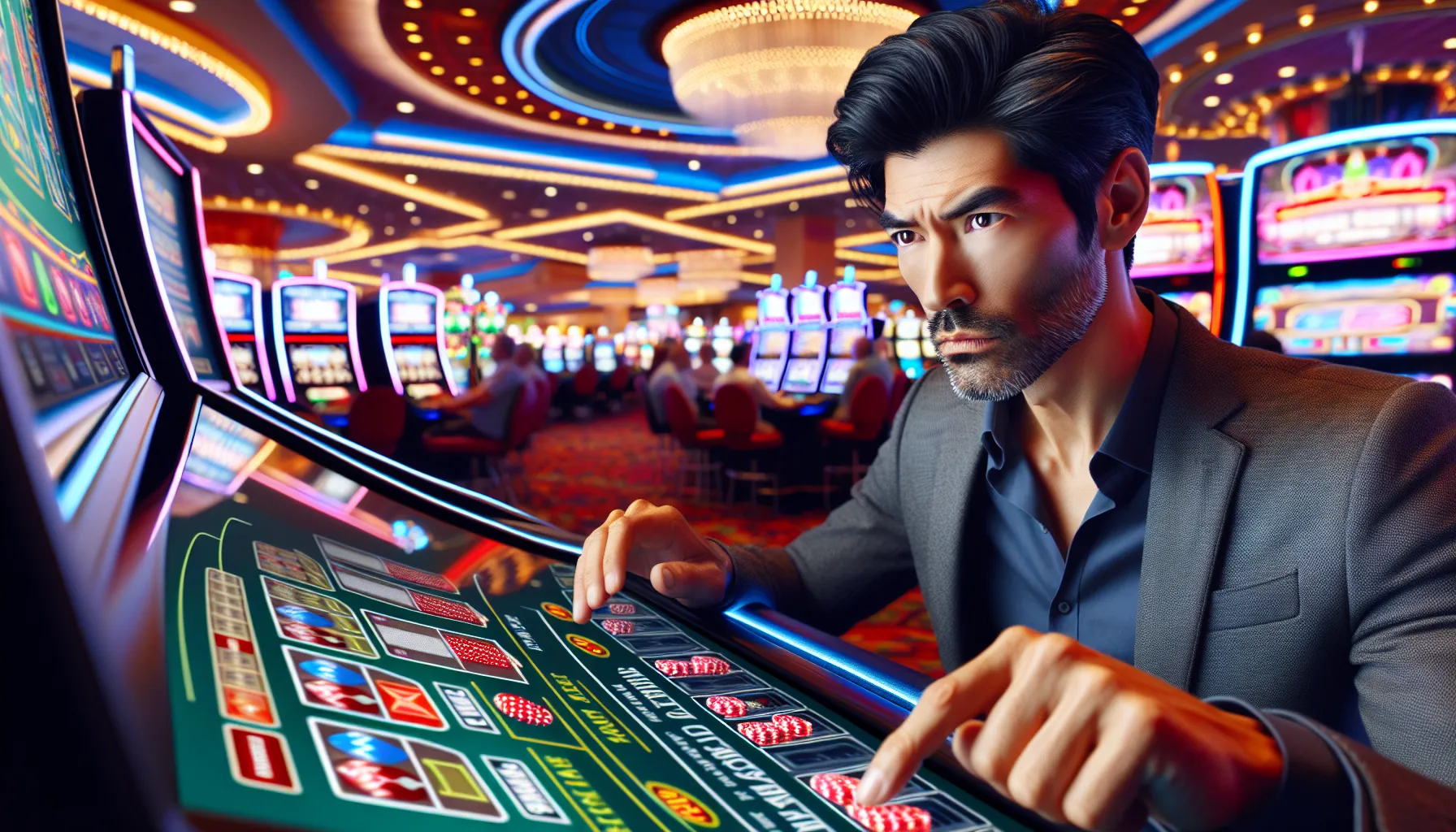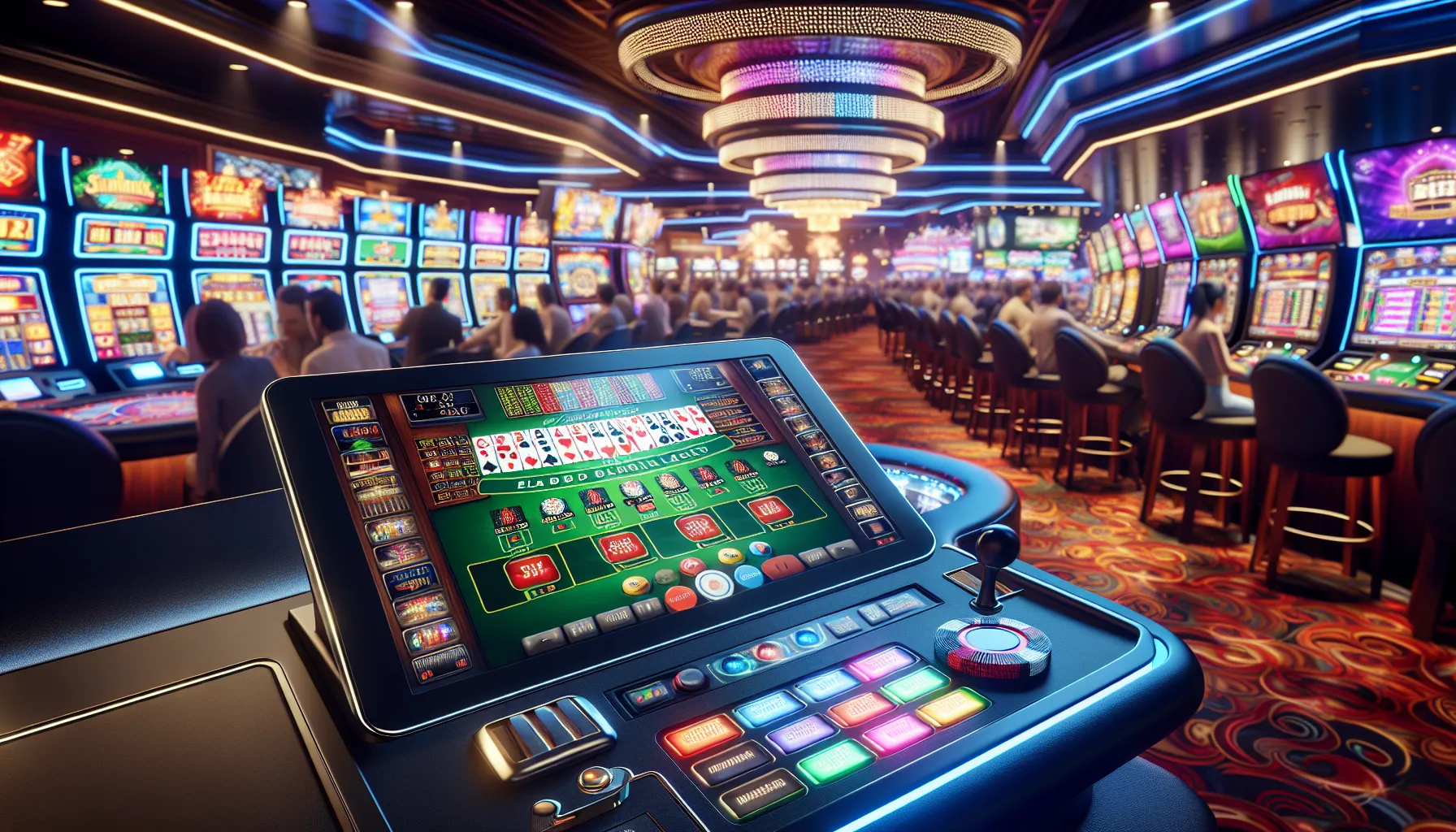Key Takeaways
- Video blackjack relies on RNG technology to ensure fairness by simulating random card distributions, similar to shuffling a physical deck.
- Reputable software providers and regulated casinos are crucial for maintaining game integrity, with trusted names like Microgaming and NetEnt passing independent audits.
- Licensing from recognized authorities such as the MGA or UKGC ensures that video blackjack complies with strict regulations and undergoes regular testing.
- Concerns about rigging often stem from skepticism, but certified machines in regulated environments are tested to prevent manipulation, providing a fair gaming experience.
- Players should seek games with high RTP percentages (often exceeding 99%) and play at licensed casinos verified by third-party agencies like eCOGRA.
- Understanding the pros and cons—such as convenience and high RTP vs. lack of social interaction—can help players decide if video blackjack suits their preferences.
I’ve always found video blackjack fascinating. It’s fast-paced, convenient, and lets me enjoy the thrill of the game without sitting at a crowded table. But every now and then, I can’t help but wonder—can I really trust the game? Is it fair, or is there something sneaky going on behind the scenes?
It’s a question I know a lot of players have asked themselves. After all, when you’re playing against a machine instead of a live dealer, it’s easy to feel like the odds might not be in your favor. Let’s dive into whether video blackjack is as fair as it claims to be and what you should know before placing your bets.
What Is Video Blackjack?
Video blackjack is a virtual version of the classic card game, played on an electronic machine instead of a physical table. It combines the essentials of blackjack with the convenience of computer-generated gameplay.
How Video Blackjack Works
The game operates using a Random Number Generator (RNG) to simulate card shuffling and dealing. The RNG ensures that card outcomes appear unpredictable and mimic the randomness of a physical deck. Players place bets, select actions like “hit” or “stand,” and interact with the game through buttons or a touchscreen interface.
Unlike live dealer games, video blackjack progresses at the player’s pace. There are no other participants or a dealer influencing the pace, creating an uninterrupted and tailored gaming experience. Many machines also display odds, payouts, and player balances directly on the screen for added transparency.
Key Differences Between Video Blackjack And Live Dealer Games
- Game Format: Video blackjack uses an RNG for card distribution, while live dealer games feature a human dealer using physical cards.
- Pace of Play: Players control the speed of video blackjack, whereas live games proceed at the dealer’s pace.
- Interaction: Live dealer games offer social interaction with the dealer and other players, which is absent in video blackjack.
- Environment: Live games showcase real-time dealing through streaming, while video blackjack relies entirely on screen-based simulations.
Choosing between these formats depends on personal preferences, including the importance of social interaction, gameplay speed, and trust in either RNG technology or live dealing mechanics.
Addressing The Question: Is Video Blackjack Rigged?

Questions about fairness often arise when discussing video blackjack. Players frequently ask whether the game provides a legitimate chance of winning or if it’s rigged against them.
Common Concerns About Rigging
Some players believe video blackjack is designed to ensure losses for users. These concerns usually stem from skepticism about electronic systems and the lack of a live dealer. Others point to long streaks of losing hands or unlikely card distributions as potential signs of unfair play. However, such patterns can occur naturally in any game involving chance.
Licensed video blackjack machines undergo rigorous testing by regulatory authorities. These tests verify the integrity of the game and confirm that outcomes are not fixed. Machines found to deviate from these standards cannot operate in regulated environments, ensuring a level playing field for users.
Random Number Generators (RNGs) And Their Role
RNGs form the backbone of video blackjack fairness. They generate numbers at a rapid pace, translating into random card outcomes each game. Unlike human dealers, RNGs don’t follow memory or bias, making results unpredictable and free from manipulation.
Independent auditors regularly test RNGs for compliance with industry standards. When properly implemented and monitored, these systems maintain fairness, ensuring hands are as random as in live dealer scenarios. Players using machines from reputable operators benefit from this enforced integrity.
Factors That Impact Fairness In Video Blackjack

Several factors contribute to the fairness of video blackjack, including the integrity of the software and adherence to industry regulations. Understanding these elements helps players make informed decisions.
Software Developers And Trustworthiness
Reputable software providers ensure the reliability of video blackjack games. Names like Microgaming, NetEnt, and Playtech are widely recognized for high-quality software that undergoes independent testing. Such companies invest in Random Number Generators (RNGs) complying with strict fairness standards. I look for games from trusted developers to confirm the system’s integrity.
Untrustworthy providers may lack proper testing, which increases the risk of manipulated outcomes. Sticking to recognized developers minimizes this concern. I focus on casinos offering games verified by organizations like eCOGRA or iTech Labs.
Casino Licensing And Regulation
Regulated casinos follow guidelines that ensure video blackjack games operate fairly. Licenses from authorities like the Malta Gaming Authority (MGA), UK Gambling Commission (UKGC), or Nevada Gaming Control Board require regular audits. These bodies examine RNGs and payout percentages to confirm compliance. When I see a casino licensed by one of these organizations, I feel confident it’s being properly monitored.
Unlicensed operators, on the other hand, face no oversight. This makes fairness less likely. Verifying licensing information, often found in a casino’s website footer, is essential for choosing trustworthy platforms. Players safeguarding themselves against unlicensed places reduces exposure to unfair practices.
Tips To Ensure A Fair Gaming Experience

Ensuring fairness in video blackjack starts with making informed decisions. I rely on specific strategies to maintain a secure and enjoyable gaming session.
Choosing Reputable Casinos
Playing at licensed, regulated casinos is crucial for fairness. I always verify the casino’s licensing authority, such as the Malta Gaming Authority (MGA) or the UK Gambling Commission (UKGC). These organizations require operators to meet strict regulatory standards and undergo regular system audits, which protect players from manipulation.
Checking player reviews and third-party audits also helps. Independent testing agencies like eCOGRA or iTech Labs certify games for fairness. If a casino showcases certificates from these agencies, I feel confident the platform prioritizes integrity.
Understanding Return-To-Player (RTP) Percentages
RTP measures the average percentage of wagered money a game returns to players over time. For video blackjack, the RTP slot commonly exceeds 99%, depending on the rules. I always research a game’s specific RTP before playing, as slight variations can significantly impact outcomes.
Trusted developers like NetEnt and Microgaming display transparent RTP details for their games. Ensuring the game has a high RTP fosters confidence that the outcomes align with industry expectations, providing a fair chance to win.
Pros And Cons Of Playing Video Blackjack
Video blackjack has its benefits and drawbacks. Understanding these can help players decide if the game matches their preferences and risk tolerance.
Advantages Of Video Blackjack
Convenience stands out as a major advantage when playing video blackjack. It allows me to play anytime without visiting a physical casino. This flexibility appeals to people who value access and ease.
Pace control is another highlight. I can dictate the speed of gameplay without feeling rushed by dealers or other players. It creates a personalized experience, which isn’t possible in a live setting.
High RTP percentages often favor players. Video blackjack games typically feature RTP rates over 99%, offering better odds compared to many casino alternatives.
Accessible minimum bets make it appealing to casual players. I can wager smaller amounts than most live tables demand, reducing financial pressure during gameplay.
Potential Drawbacks And Risks
A lack of social interaction may deter some players. Unlike live blackjack, video versions don’t offer the camaraderie of playing with others, which is a dealbreaker for those who enjoy the casino atmosphere.
Skepticism about RNG fairness can affect trust. Without seeing physical cards, I find myself wondering if outcomes are genuinely random, especially during prolonged losing streaks.
Increased gameplay speed can lead to higher financial risks. The fast pace might tempt me to spend more within a shorter timeframe, potentially escalating losses for inattentive players.
Conclusion
At the end of the day, whether or not video blackjack is the right choice comes down to what you’re looking for in a gaming experience. With trusted developers, licensed casinos, and a bit of research, you can enjoy a fair and entertaining game. While concerns about fairness are understandable, the safeguards in place for reputable platforms should give players peace of mind.
If you’re someone who values convenience and enjoys a fast-paced game, video blackjack might be a perfect fit. Just remember to play responsibly, stick to trusted platforms, and have fun while staying within your limits.
Frequently Asked Questions
What is video blackjack?
Video blackjack is a virtual version of the classic card game, played on electronic machines that use a Random Number Generator (RNG) to simulate card shuffling and dealing. It offers a convenient and tailored gaming experience, allowing players to control the game’s pace without the presence of a live dealer.
Is video blackjack fair?
When played on licensed and regulated platforms, video blackjack is fair. Licensed machines use RNG technology to generate random outcomes, and these systems are tested regularly by independent auditors to ensure fairness. Always verify a casino’s licensing and choose games from reputable developers.
Can video blackjack be rigged?
Unregulated platforms may pose a risk, but licensed video blackjack games are rigorously tested to ensure fairness. Trusted casinos follow strict industry guidelines, and reputable developers ensure unbiased outcomes. Players should always verify the casino’s license and user reviews.
How does video blackjack differ from live dealer blackjack?
Video blackjack is a solo, machine-based experience with faster gameplay and no live interaction. Live dealer blackjack involves real dealers and other players, offering a social and realistic casino-like environment. Each suits different player preferences.
What role does RNG play in video blackjack?
The RNG, or Random Number Generator, ensures card outcomes are random and unbiased. Reputable video blackjack machines use certified RNG technology to replicate the randomness of physical card shuffling, maintaining fairness for players.
How can I trust a video blackjack game?
To ensure trustworthiness, choose games from reputable developers like NetEnt or Microgaming. Play only on licensed casinos regulated by authorities like the UKGC or MGA. Check for independent audits from eCOGRA or iTech Labs for added peace of mind.
What is RTP, and why is it important in video blackjack?
RTP, or Return-To-Player, is the percentage of wagered money a game returns to players over time. Video blackjack often has high RTP rates exceeding 99%, giving players stronger odds. Always research the RTP of your chosen game.
What are the advantages of video blackjack?
Video blackjack offers convenience, as it can be played anytime from anywhere. Players enjoy control over gameplay speed, high RTP percentages, and lower minimum bets, making the game accessible to both new and experienced players.
Are there any downsides to playing video blackjack?
Potential drawbacks include a lack of social interaction and skepticism about the fairness of RNGs. Additionally, the fast-paced nature of the game may lead to increased financial losses if players are not cautious with their betting.
How can I choose a safe platform to play video blackjack?
Look for licensed casinos regulated by authorities like the UKGC or MGA, read player reviews, and verify third-party audits. Reputable casinos display their licensing information publicly, ensuring fair and safe gaming experiences.



